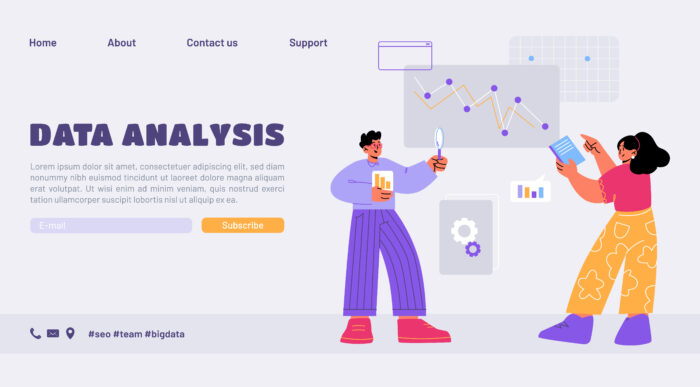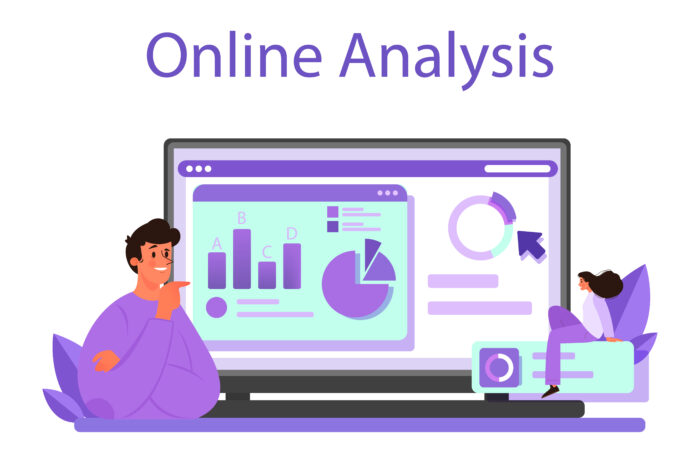
The success of a company depends on its online presence in the quick-paced digital age. Businesses must be aware of how well their website performs because a website acts as a virtual showroom. The secret to gaining insightful knowledge about user behaviour, website traffic, and overall performance is website analytics. We will examine the importance of website analytics in this blog post, along with how it aids in monitoring website performance and practical methods that can be taken to enhance user experience and accomplish company objectives.
Website analytics is the methodical gathering, measuring, analysis, and reporting of website data to learn more about the effectiveness of the website. Businesses can get useful data from it about user interaction, conversion rates, and general website performance. For making educated judgements, maximising digital marketing efforts, and promoting growth, it is crucial to comprehend these indicators.

A thorough understanding of website performance is provided by a range of measures. Principal metrics are:
a. Website traffic analysis includes counting both unique and total visitors to the site, as well as identifying the traffic sources.
b. Bounce Rate: Measuring the proportion of users to a website who depart after only reading one page, a sign of apathy or a bad user experience.
c. Conversion Rate: Measuring the frequency with which users to a website perform an intended action, like making a purchase or completing a contact form.
d. Average Session Length: Determining the typical amount of time users spend on the website, which reveals their levels of involvement.
e. Exit Pages: Tracking the pages from which users leave a website might reveal possible problem areas.
A robust and popular website analytics tool, Google Analytics provides a wide range of information and insights. When Google Analytics is integrated with a website, useful data on website performance, user behaviour, and marketing efforts is obtained. Businesses can use this data to inform data-driven decisions that will improve their online presence.

Improving user experience requires an understanding of how users traverse websites. Businesses may trace visitor journeys, see the most popular content, and spot drop-off points with website analytics tools. With this knowledge, organisations can improve content layout, navigation, and calls-to-action to direct consumers to desired actions.
Conversion funnels keep track of the steps visitors take on a website to reach a particular objective, like making a purchase. Businesses can analyse their conversion funnels to find bottlenecks and potential areas for development, ultimately raising conversion rates and revenue.
Having mobile-friendly analytics is vital given the surge in mobile usage. Mobile analytics reveal how people engage with a website across a range of devices. Understanding mobile user behaviours promotes maximum engagement and helps to optimise the mobile experience.

Website analytics not only offer information but also open the door to advancements. Here are some practical suggestions to improve website performance:
a. Improve website loading times to cut down on bounce rates and enhance user experience.
b. material optimisation: To increase user engagement, employ analytics to find popular material and optimise it.
c. A/B Testing: Use A/B testing to examine different website element iterations and ascertain which functions best.
d. Optimise the website for mobile users and make sure it is fully responsive.
e. Improve the user interface (UI) for a more intuitive and user-friendly experience based on insights into user behaviour.
f. Search Engine Optimisation: Use analytics to find high-performing keywords and improve content for higher search engine ranks.
An effective technology that gives organisations useful insights into website performance and user behaviour is website analytics. Businesses may optimise their online presence, improve customer experience, and accomplish their business objectives through data-driven decision-making. Businesses may maintain their competitiveness in the digital market and continuously enhance their websites to match the changing needs of their audience by utilising website analytics. Never forget that knowing and acting on the metrics that are most important to your company is the key to success.
We would love to work with you on your next project or breathe new life into an existing one. Speak to our experts today!
Contact us